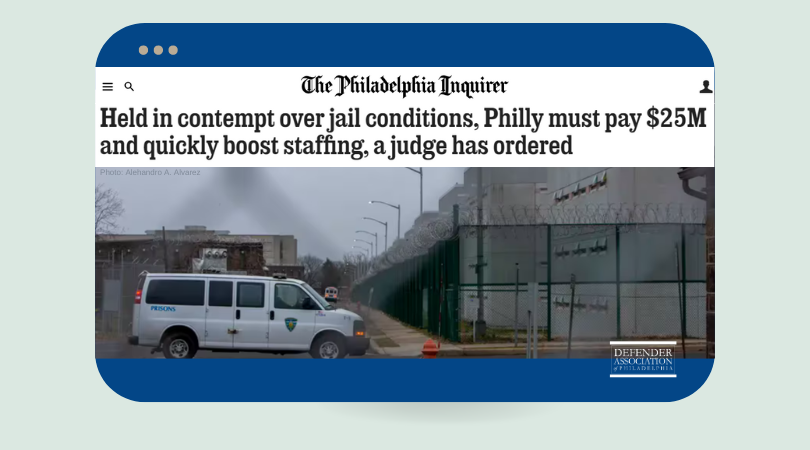PHILADELPHIA–”Although the court’s $25 million civil rights class-action settlement over prison conditions is a significant step, it is unfortunate that it’s taken repeated judicial intervention for the City of Philadelphia to fulfill its obligations. Judge McHugh’s ruling underscores the city’s ongoing failure to address the safety and dignity of incarcerated individuals. The well-being of those in custody in the Philly jails and the employees who work there should never be an afterthought, and we hope this ruling is a catalyst for lasting reform.
“We have repeatedly called attention to the inhumane conditions faced by those held in the Philadelphia Department of Prisons. The severe lack of transparency, inadequate staffing, and overcrowded facilities are ultimately a threat to both human rights and public safety. The city’s failure to heed these warnings and take decisive action has left the courts no choice but to step in.
“Our office has been advocating for the solutions outlined by Judge McHugh in his order, including assessing the release of low-risk, medically vulnerable individuals. While the order outlines processes to address the understaffing, the jail won’t be able to hire itself out of this crisis. We need to lower the population so that at least the oldest jail can be retired and the staff there reassigned where needed. These measures are critical steps that could significantly ease the burden on staff and improve safety conditions.
“The Defender Association reiterates its call for the city to work in collaboration with every justice system stakeholder, community leaders and advocates to implement changes that prioritize safety, transparency, and accountability within our jails and across the justice system. But to ensure these changes are lasting and meaningful, we need to establish a permanent oversight body that can collaborate with prison administrators to prevent similar crises in the future.
“Those incarcerated on State Road and the prison employees are citizens of Philadelphia. We can’t afford to leave them out of the public safety conversation.”










